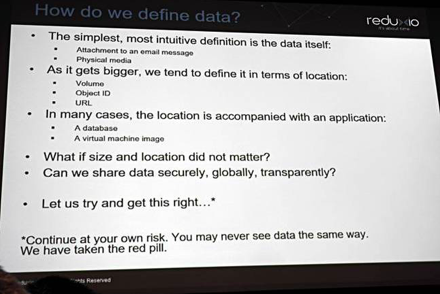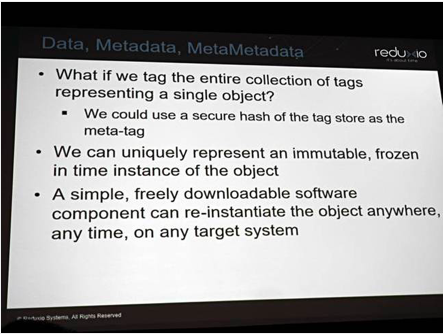Reduxio today announced the Magellan Cloud Data Platform via a jargon-dripped press release.
This is a “native cloud storage and data management platform with its breakthrough microservices architecture that provides enterprises deploying stateful container applications never-before-available capability and flexibility for Kubernetes-based private, hybrid, and multi-cloud infrastructure”. Try saying that in one breath.
Reduxio said Magellan delivers instant application mobility and rich data management capabilities. The platform will allow enterprises to unify multiple infrastructure islands into a single data cloud, the company claimed.
Cloud storage will be big
“Cloud storage will be a $97 billion market worldwide in just three years, driven in large part by the shift to cloud-native applications, but deployments are still far too burdened by the technologies of the past,” said Ori Bendori, Reduxio CEO.
Reduxio cites Gartner estimates that “by 2022, more than 75 per cent of global organisations will be running containerised workloads in production, which is a significant increase from fewer than 30 per cent today.”
But many containerised applications today run on storage systems created for on-premise workloads and retrofitted to support containers and clouds. This creates siloed and inflexible infrastructure, according to Reduxio.
Magellan fixes this because it delivers cloud-native container portability and scalability, the company said.
Magellan will support the analysis, storing and sharing of large amounts of data better and more cost-effectively than any other product, Reduxio said. But the company has released no numbers to support its big claim and has not published a data sheet to describe the technology.
Magellan voyage
Reduxio is working on Magellan evaluation and development with various customers and partners. It has joined the Linux Foundation and Cloud Native Computing Foundation.
According to Reduxio, Magellan can accelerate GPUs for AI/ML workloads, and it has joined the NVIDIA Inception virtual accelerator program intended to help startups in AI and data sciences.
Pivot
Magellan goes live in autumn 2019 and its launch marks something of a pivot for Reduxio.
The Israeli startup began life in 2012 as the developer of primary storage, an HX/TimeOS arraythat could be rolled back to any point in time. It stored data in unique indexed, tagged and timestamped chunks.
However, Reduxio went through a re-organisation in May 2018 with a new CEO joining, executives leaving and fresh funding sought. The company changed tack to focus on Kubernetes containers and the public cloud.
This involved the notion of metadata, describing storage objects, as slides presented at an October 2017 Reduxio briefing in Tel Aviv illustrate:


The upshot is that Reduxio has applied its metadata-driven technology, developed originally for primary storage, to stateful containers instead.








